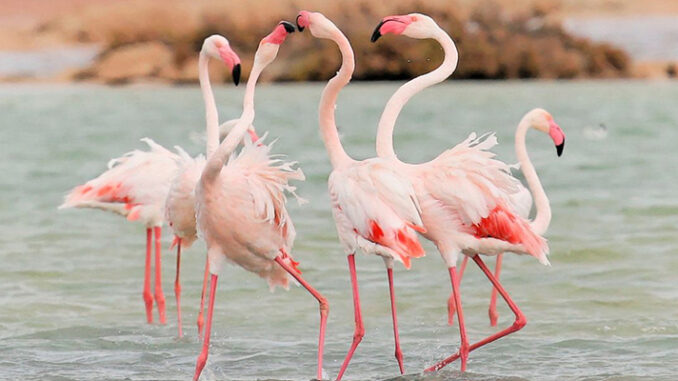
Ten endangered flamingos have been saved from an illegal trafficking attempt after smugglers were apprehended near the Algerian border in Tunisia, according to the country’s customs authorities, on February 10.
The birds were found in distress, tightly bound and crammed into crates, their wings, legs, and torsos wrapped to restrict movement. The flamingos were being transported on a lorry with a Tunisian registration plate when they were intercepted. The authorities shared images of the rescue operation, highlighting the dire condition of the birds, which were successfully returned to their natural habitat, as part of ongoing conservation efforts.
Flamingos are protected under Tunisian law, and smuggling or hunting them is strictly illegal. Despite this, such trafficking incidents remain a concern, with conservationists warning that flamingos face numerous threats. In addition to illegal hunting, pollution and climate change-induced rising temperatures are shrinking the wetland habitats critical to these birds’ survival. The greater flamingo (Phoenicopterus roseus), listed as a threatened species by the International Union for Conservation of Nature, is particularly vulnerable to these environmental pressures.
While the flamingo population has suffered from various challenges, there is some cause for optimism. Over the past decade, data has shown an increase in their numbers, with current estimates suggesting at least half a million flamingos remain in the wild. Tunisia is a key stop on the migratory route for these birds, with notable bird-watching locations such as Djerba Island and Korba Lagoon offering sanctuary for the flamingos during their travels across North Africa, Europe, West Africa, and Asia.
